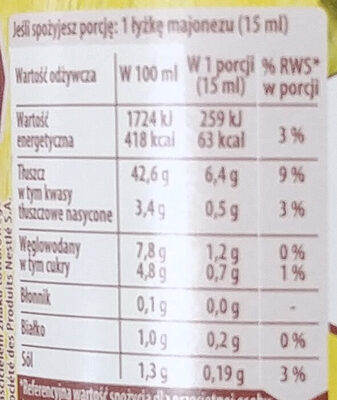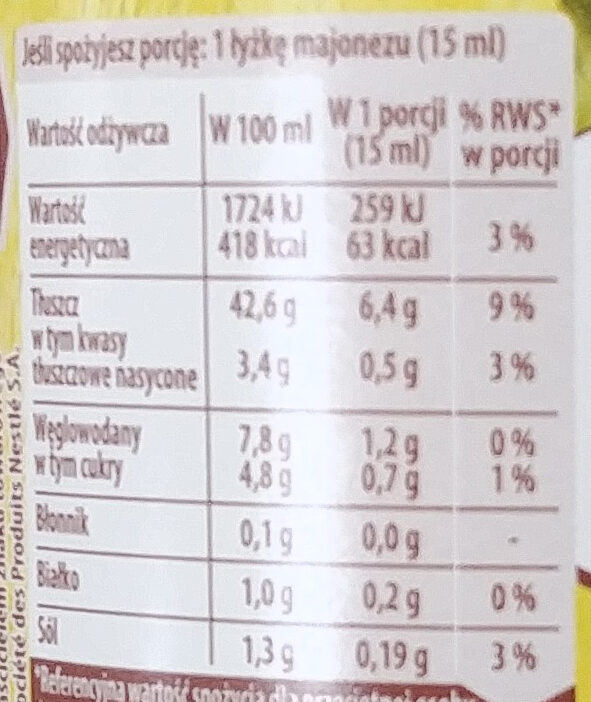Majonez delikatny - Winiary - 300 ml
This product page is not complete. You can help to complete it by editing it and adding more data from the photos we have, or by taking more photos using the app for Android or iPhone/iPad. Thank you!
×
Barcode: 7613036217583 (EAN / EAN-13)
Quantity: 300 ml
Categories: Condiments, Sauces, Mayonnaises, Groceries
Stores: Społem
Countries where sold: Poland
Matching with your preferences
Environment
Carbon footprint
Packaging
Transportation
Report a problem
Data sources
Product added on by pyrka
Last edit of product page on by sierigh.
Product page also edited by moon-rabbit, openfoodfacts-contributors, roboto-app.
If the data is incomplete or incorrect, you can complete or correct it by editing this page.











